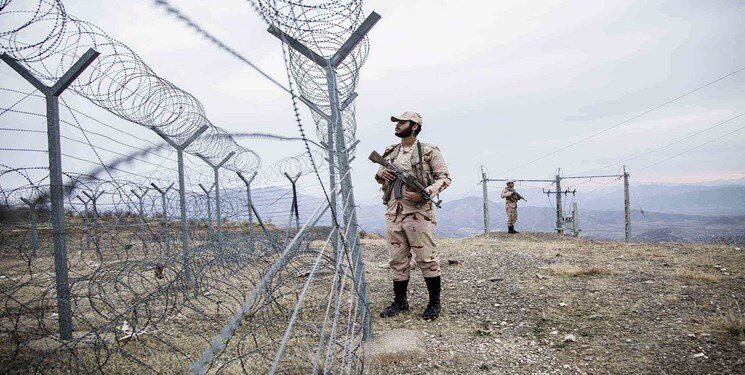Iran highlights Taliban responsibility to ensure security

TEHRAN - Over the last month, a series of violent incidents took place in Afghanistan and eastern Iran that raised alarm bells about possible plots to drive a wedge between the two neighbors.
And in all these incidents Iran exercised maximum restraint to prevent the situation from spiraling out of control while keeping close contact with the ruling authorities in Kabul to make them understand the gravity of the situation.
On March 23, an Iranian police officer lost his life during clashes with militants in eastern Iran. Nearly two weeks later, on April 5, three Iranian clerics were stabbed by an Afghan extremist at the holy shrine of Imam Reza in Mashhad two of them lost their lives due to severe injuries. On April 23, the convoy of the commander of the IRGC Special Forces in Zahedan came under attack which resulted in the death of the commander’s bodyguard.
Meanwhile, in Afghanistan, which is a stone’s throw from the location of the forgoing incidents, a wave of explosions killed and injured dozens of Shiite and Sunni civilians. Six terrorist attacks hit Afghanistan in a period of four days.
Iran sensed danger early and warned about plots to instigate a sectarian war in Afghanistan and direct it to Iran. The Iranian Foreign Minister was quick to denounce the attacks in Afghanistan and reminded the Taliban of its responsibility toward maintaining peace and security.
In light of the recurrence of numerous explosions in different cities of Afghanistan, Foreign Ministry spokesman Saeed Khatibzadeh expressed Iran’s concern about these tragic events. He referred to the blind terrorist acts that took place during the holy month of Ramadan, which coincides with the presence of more people in mosques, describing the targeting of fasting worshipers as a repulsive act.
Shiite and Sunni mosques were equally targeted by bomb explosions in Afghanistan, something that deeply concerned Iran. Following an explosion at the Mawlawi Sekandar mosque for Sunni Muslims, Khatibzadeh pointed to a series of terrorist attacks in Afghanistan over the past days and described the escalation of violence as a source of deep concern.
“The attack on the Sunni mosque in Kunduz Province, which followed yesterday’s attack on the Shia mosque in Mazar-i-Sharif, clearly shows the evil goals of the terrorists serving as mercenaries for foreigners, who are seeking to create a civil war in Afghanistan,” he added.
Also, Iranian President Ayatollah Seyed Ebrahim Raisi used his capacity as the head of Iran’s Supreme National Security Council to warn about threats against the people of Afghanistan and neighboring countries.
“Following the recurrence of criminal terrorist explosions in schools and mosques in different parts of Afghanistan, which have resulted in the martyrdom and injury of a significant number of Afghans, the President sent a message and warned about the spread of threats against the Afghan people and nations in the region,” the official website of the Iranian presidency said in a statement, adding, “The President of the Supreme National Security Council also stressed the responsibility of the Afghan rulers in identifying and punishing the terrorists responsible for the recent attacks, and said that the Islamic Republic of Iran is ready to cooperate and use all its means to counter the threat of Takfiri terrorism and prevent recurrence of these tragedies.”
Iran is exercising restraint on Afghanistan and has extended a helping hand to the battle-scarred country, but in the last month there have been several dangerous incidents, each of which has the potential to provoke misunderstanding.
“The situation in Afghanistan, including all ethnic and religious groups, has been important to the Islamic Republic of Iran since day one, and the Afghan government's definite responsibility to all ethnicities and groups has been reminded,” Khatibzadeh said in a Monday presser. “We do not have a minority in Afghanistan, we have tribes that all share the present and the future of Afghanistan.”
Underlining the Taliban’s definite responsibility to ensure the security of all ethnic groups in Afghanistan, Khatibzadeh said, “The Islamic Republic of Iran deeply regrets that [Afghanistan’s] governing body has not yet been able to establish the necessary security in some areas.”
